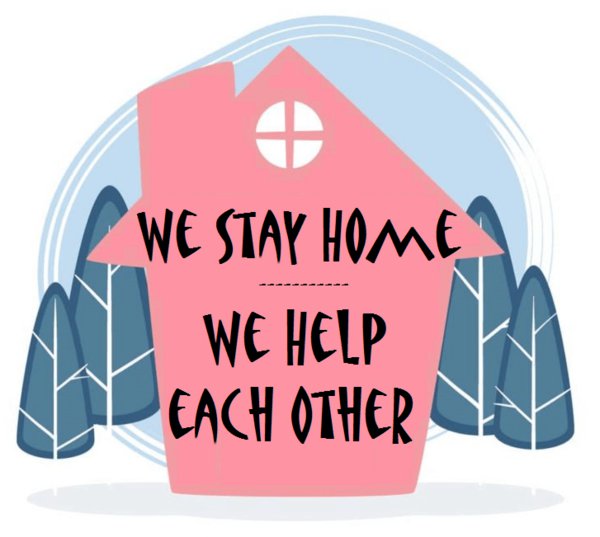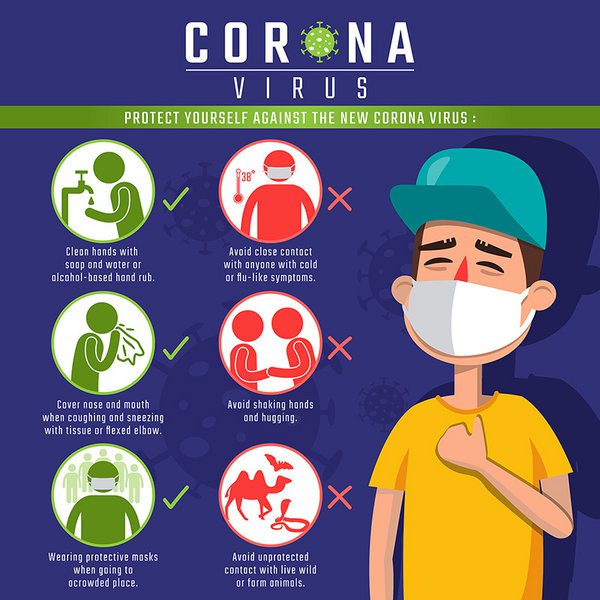Coronavirus Guidelines and Updates
Updated: March 21, 2020
User Links →UPDATE on the ANNOUNCED CLOSURE:
According to the directions of the Greek authorities, ACS Athens closure has been extended until April 10, 2020.
ACS Athens Virtual resumes Wednesday, April 22, 2020.
To all students: Since March 10, 2020 learning continues via our online classroom platform ACS Athens Virtual.
The health and well-being of our students, staff members and community is of utmost importance, thus in light of the world wide concern regarding the Coronavirus and its implications, we would like to provide you with important information as to the processes that are in place in for our school community.
For any questions or concerns please email: acs@acs.gr
Call 1135 for General Information about the Coronavirus COVID-19 (Greek Language) from EODY - National Public Health Organization.
Nurse's Office
If you have any health related questions or concerns, please contact the ACS Athens Nurse's office at gargalia@acs.gr. For emergencies, please contact: 30 698 3919 428
To All Visiting Families:
During the school closure, campus visits are suspended. Please contact acs@acs.gr to discuss alternative options (online meetings etc.).
Athletic Events
During the school closure, all local and international events are canceled. Please come back for updates.
Learning does not stop!
User Links →Contingency plans during a mandatory school closure
During the school closure due to the Coronavirus (COVID-19) outbreak, all classes proceed in an online learning environment (ACS Virtual) in which teachers conduct their weekly lessons.
ACS Athens’ classroom management system Moodle® allows our teaching faculty to guide students with their online learning.
Academy & Middle School:
Students access their weekly lessons, assignments, and assessments in the homepage of the class Moodle shell for each of their courses. (Middle School, Academy). Once a week, students join each class for at least one synchronous session (online at the same time as their classmates and the teacher) through discussion boards, Moodle’s the “Big Blue Button", or posted videos, based on a specific schedule, that will be communicated directly with the students, if need be.
Teachers also have virtual office hours for students to reach out via Moodle chat, discussion boards, or email for assistance or feedback. Teachers may also schedule additional synchronous sessions during the regularly scheduled periods of the week, depending on the needs.
Students need access to reliable internet with a laptop, tablet, or PC, ideally with a working microphone and camera - smartphones do not suffice for their online studies. The online learning environment requires students to check their weekly assignments and keep organized with the scheduled sessions and assignment due dates.
Elementary School:
Similar arrangements are made for the higher grades of Elementary, while the lower Elementary depend on the communication between teachers and the parents
Attendance:
Students are required to attend all the virtual face-to-face synchronous meetings as per the schedule provided. The Attendance Office records absences and communicate directly with parents. Students need to make up the work missed during the synchronous face-to-face session in addition to the other virtual classwork. Learning is monitored via scheduled assessments.
Guidelines for home quarantine
Updated: March 9, 2020
User Links →Persons who have been in contact with a suspected or a confirmed case of infection with the new coronavirus (eg family members, friends, colleagues, health professionals), must monitor their health twice daily from the day of the last contact with the case and for the duration of 14 days. Regular (daily) communication with a healthcare professional throughout the monitoring period is advisable.
For the whole duration of the monitoring (14 days) the following should apply:
- Stay in a well-ventilated room used by this person only.
- Restricting caregiving to only one person, ideally a person who is not in a high-risk group (that is, elderly or with a chronic illness).
- No visits allowed.
- Other family members stay in a different room and if this is not possible, keep a distance of at least 2m from the person.
- Restrict one's movements within home as much as possible.
- Maintain good ventilation of common areas.
- Wash hands thoroughly before and after each contact with the person or their surroundings (room, objects), before and after food preparation, before meals and after using the toilet (washing with soap and water or using an alcoholic antiseptic accordingly whether the hands are visibly soiled or not).
- Careful disposal of materials used to cover the nose and mouth, thorough washing in case they are not disposable.
- Avoid direct contact with body fluids, especially saliva, sputum or other respiratory secretions and feces with bare hands and disposable gloves. Hand hygiene follows.
- Avoid contact with potentially contaminated objects such as dishes, cups, cutlery, towels, and sheets which are reused after thorough washing.
- Cleaning and disinfecting surfaces and objects in a person's room daily with a common detergent or soap, rinsing and then disinfecting with a household bleach 1:10
- Clean the toilet daily in the same way.
If a person has symptoms of respiratory infection (eg fever, cough, sore throat, difficulty breathing), he or she should immediately call their doctor or the National Organization of Public Health (EODY) tel: 210 5212 054 for instructions.
Management of infectious diseases
Keeping facilities and students clean is the most effective way to combat infectious and communicable diseases. All staff, maintenance and the school nurse in coordination, are taking the following precautions to prevent and manage the spread of the infections:
- Encouraging students to practice good hygiene habits on a daily basis (e.g., students should keep their hands clean by washing them with soap or water or using alcohol-based hand sanitizer gel, cover their nose and mouth while coughing or sneezing using their elbows or a tissue).
- Hand cleaning Alcohol-based Medi-gel bottles are available throughout the school classrooms and offices.
- Students who show cold and flu symptoms are sent directly to the Health Center.
- If a student shows symptoms of fever (38C), vomiting or diarrhea during school hours he/she will be sent home. Parents are strongly encouraged to seek medical advice from their physician.
- If a student comes to school sick with fever, vomiting or diarrhea parents will be notified and asked to pick him/her up from school. A child who has fever should remain at home until he/she is "fever free" for a minimum of 24 hours without the use of fever reducing medication. Children should be physically able to participate in all school activities upon returning to school.
- When a confirmed case of an infectious or communicable disease is reported (i.e. influenza, staph) a physician’s note is required for the student to return to school.
- If a student misses school for 3 consecutive days due to health-related reasons, a follow up communication with the parents is in order.
- Families, across a grade level are notified through an informative letter sent by the Health Office, regardless of the classroom where the incident occurred for general awareness.
- All parents ought to report to the Health Office any suspicious symptom(s) that may indicate such an infection
- Cleaning personnel utilizes microbial disinfectants in their regular routines while during the day they sanitize with Dettol common use areas and equipment. They clean and disinfect frequent touched surfaces (i.e. furniture, toys, doorknobs, keyboards).
- All classrooms maintain good indoor ventilation. Weather permitting, windows and doors remain open for fresh air.
- Hygiene posters are posted through campus.
Useful links
User Links →- WHO - World Health Organization
- CDC - Centers for Disease Control and Prevention - COVID 19 Guidelines
- Coronavirus COVID-19 Global Cases by Johns Hopkins CSSE - Live Updates
VIDEO -- Brainpop - Learn about the Coronavirus It can be scary to hear about a disease outbreak, but learning the facts can help ease your mind. A new coronavirus—a type of virus named for its crown-like shape—emerged in Wuhan, China in 2019, and then spread to people around the world. While the most severe cases often dominate the headlines, they’re not the whole story. Most coronavirus cases have been mild, and healthy bodies can fight off the infection on their own. Find out more about how viruses work, and the best ways to prevent them from infecting more people. Viruses can’t spread without our help, so click play to learn how not to help them!
VIDEO -- World Health Organization (WHO) What do you know about the novel Coronavirus that is causing a health emergency? Coronaviruses (CoV) are a large family of viruses that cause illness ranging from the common cold to more severe diseases such as Middle East Respiratory Syndrome (MERS-CoV) and Severe Acute Respiratory Syndrome (SARS-CoV). A novel coronavirus (nCoV) is a new strain that has not been previously identified in humans.
VIDEO -- Fight Germs. Wash Your Hands! Centers for Disease Control and Prevention (CDC) This handwashing demonstration will show you how handwashing can get rid of germs and chemicals that get on our hands every day.
Greek Language -- Ministry of Health COVID-19 Protection Guidelines





